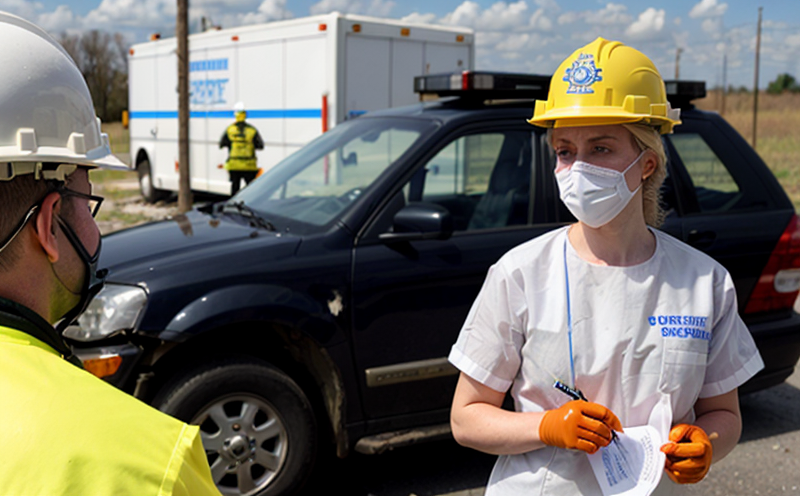ISO 18589-5 Radiochemical Uranium/Plutonium Testing in Emergencies
The ISO 18589 series of standards provides a comprehensive framework for the accurate and reliable determination of uranium and plutonium in environmental, biological, and industrial samples. Specifically, ISO 18589-5 focuses on radiochemical techniques used to measure these elements in emergency situations where rapid and precise analysis is critical.
In scenarios such as nuclear accidents or incidents involving radioactive materials, the ability to swiftly assess contamination levels can mean the difference between immediate containment measures and prolonged exposure risks. This service ensures that laboratories are equipped with methods validated by internationally recognized standards to provide reliable results under challenging conditions.
The protocol outlined in ISO 18589-5 involves several key steps, including sample collection, preparation, digestion, separation of isotopes, and quantification using sensitive analytical techniques like alpha spectrometry or liquid scintillation counting. The process is designed to minimize matrix interferences while ensuring high precision and accuracy.
Compliance with this standard requires a robust quality management system that includes strict adherence to procedural protocols, regular calibration of equipment, proficiency testing, and ongoing staff training. Our laboratory adheres strictly to these requirements, ensuring consistent performance across all tests conducted according to ISO 18589-5.
For effective emergency response, timely reporting is crucial. Once samples have been analyzed following the prescribed methodology, results are provided promptly through detailed reports that include raw data, calculated concentrations, and any relevant metadata such as environmental conditions during sample collection.
In addition to meeting regulatory requirements, our service also supports R&D efforts by offering insights into how specific materials behave under extreme circumstances. This information can be invaluable for developing better protective measures or improving disaster recovery strategies.
- Sample Collection: Ensuring proper handling and preservation of samples before analysis.
- Preliminary Digestion: Breaking down complex matrices to facilitate further processing.
- Isotope Separation: Precise separation techniques to isolate uranium from plutonium.
- Analytical Techniques: Utilization of advanced instrumentation capable of detecting minute quantities accurately.
Eurolab Advantages
Our laboratory is part of the Eurolab network, which guarantees a high level of expertise and reliability. By partnering with us, clients benefit from:
- Comprehensive Quality Assurance: Ensuring every test meets stringent international standards.
- Expert Staffing: Highly qualified personnel trained in both traditional radiochemistry and modern analytical methods.
- Advanced Equipment: State-of-the-art instruments that support rapid, accurate testing even under adverse conditions.
- Proven Track Record: A history of successful emergency response services worldwide.
Quality and Reliability Assurance
To maintain the highest standards of quality and reliability, our laboratory employs rigorous internal controls and external audits. These measures ensure consistency in analytical results and compliance with ISO/IEC 17025:2017 accreditation requirements.
- Proficiency Testing: Participation in international proficiency tests to validate method performance.
- Inter-laboratory Comparisons: Regular exchanges with other accredited laboratories to benchmark performance.
- Continuous Improvement: Ongoing evaluation of procedures and equipment to enhance accuracy and efficiency.
International Acceptance and Recognition
The ISO 18589-5 standard is widely accepted by regulatory bodies around the world, including those responsible for nuclear safety and environmental protection. By adhering to this protocol, our laboratory contributes significantly to maintaining public health and safety standards.
Our commitment to international recognition extends beyond mere compliance; it also involves active participation in developing new guidelines where necessary. This proactive approach ensures that we remain at the forefront of best practices in radiation and nuclear testing.





